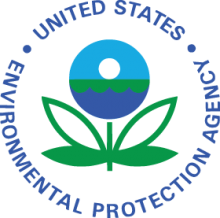S.E.S.I
Teacher Resources
This page is dedicated to providing resources for environmental science educators throughout the Border Region of
West Texas, Southern New Mexico and Northern Chihuahua.
Below you will find virtual workshops (TEKs aligned) and field trips that can be used for 9-12 environmental science or earth science classes.
The virtual workshops and field trips are designed to give students a better understanding of their local environment in the Border Region. Workshops and field trips are independent of one another, and can be utilized in any order that meet the needs of the educator and students.
Click on the pictures or titles to access the workshop/field trip.

WORKSHOPS
Virtual Field Trips
This virtual field trip is designed to introduce students to a unique wetlands habitat here in the Chihuahuan Desert. Students will learn about the restoration efforts that have taken place at the park and gain a better understanding of the environmental challenges the area has faced and continues to face today.
This virtual field trip is designed to highlight the unique archaic wetlands and a botanical garden of Keystone, and will allow students to understand some of the native plant and animal species found in our local desert habitats.
This virtual field trip is designed to help students identify and interpret the different types of ecological symbiotic relationships by exploring the virtual UTEP Centennial Museum Exhibit: Tiny Tunnels, Big Connections.
This virtual field trip is designed to immerse students into an extraordinary landscape found in the middle of the Chihuahuan Desert. Students will learn about the different bird species found at Rio Bosque Wetlands Park.
This virtual field trip is designed to expose students to farming locally in the Chihuahuan Desert. Students will learn the benefits of using local resources, understand the importance of sustainable farming and will be able to describe some of the impacts of food production on the environment.
These resources were was produced thanks to funding provided by EPA grant #NE-01F54901-0.

Insights would like to thank the following organizations for their contribution to the development of these resources:









.png)














